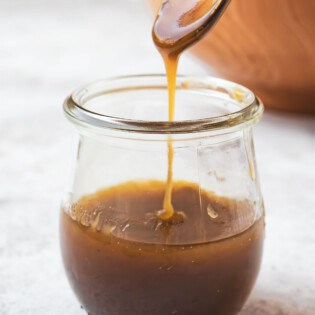Rich and sweet, this golden nectar has been a staple of the Mediterranean Diet for centuries. But is honey healthy? Read on to learn all about the benefits of honey and our favorite ways to use it, from healthy desserts to chicken marinades and beyond!
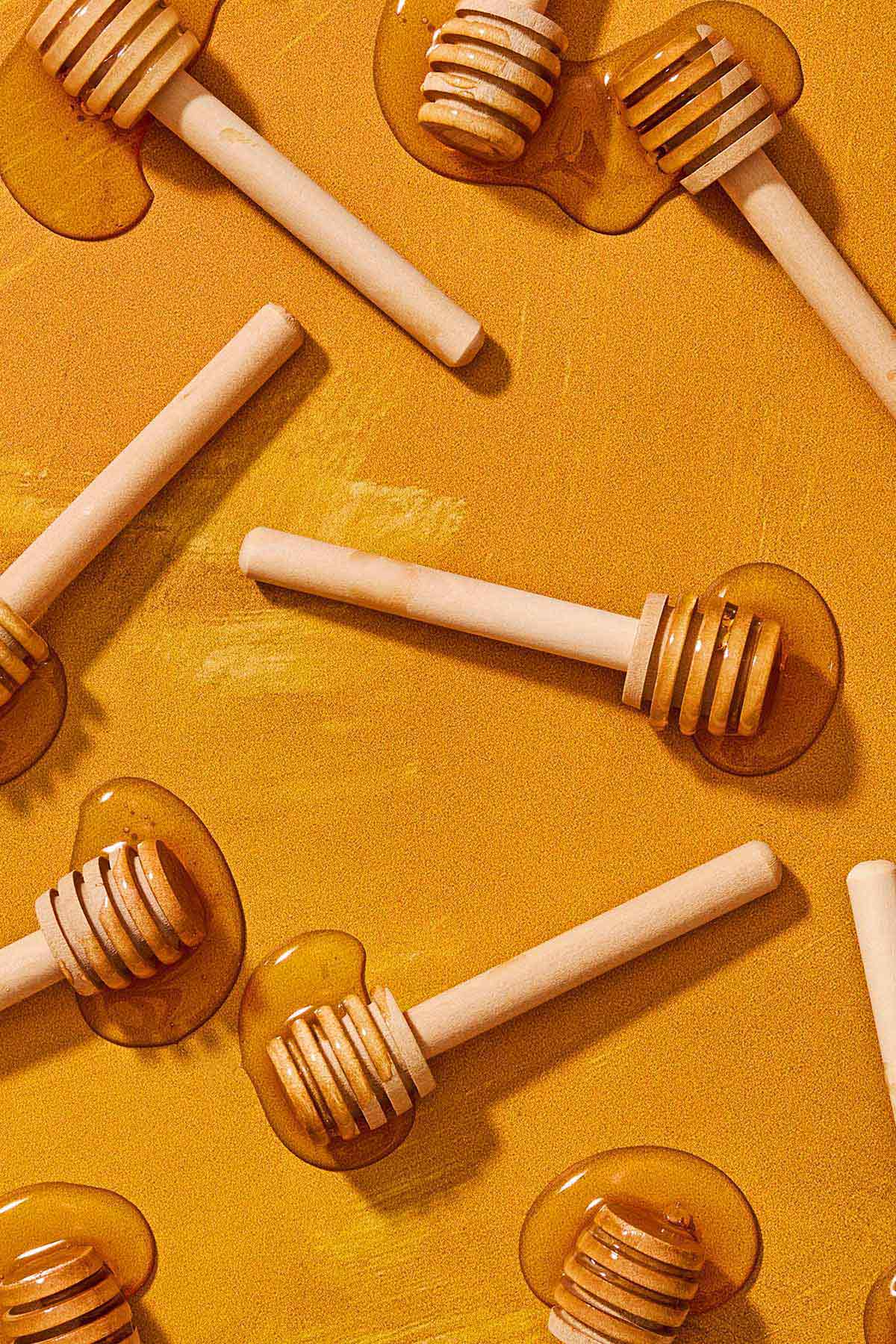
Long before I became a dietitian who specializes in the Mediterranean Diet, I loved using honey—whether in peanut butter and honey sandwiches as a kid, or stirring it into hot tea and Greek yogurt as an adult. But did you know that the benefits of honey go far deeper than its delicious taste?
Since the days of Ancient Egypt, honey has been a staple in the Mediterranean Diet. It was valued not only as a natural sweetener but also for its potential therapeutic properties, including wound healing! Today, honey remains an essential part of Mediterranean cuisine, where it’s produced throughout the region and used in everything from dressings and marinades to baked goods.
If you’re working toward a more Mediterranean-inspired diet, replacing—rather than restricting—your pantry staples with wholesome ingredients like honey and extra virgin olive oil has been shown to make the Mediterranean diet more enjoyable and sustainable. Read on to learn 6 other surprising health benefits of honey.
Table of Contents
Honey Nutrition Facts
Honey is naturally composed of glucose and fructose, providing a quick source of energy for the body. It also contains small amounts of vitamins, minerals, and antioxidants, making it a more nutritious alternative to refined sugar. According to the USDA, 1 tablespoon (or 21 grams) of honey has the following:
- Calories: 64
- Carbs: 17.3 grams
- Potassium: 10.9 milligrams
- Calcium: 1.26 milligrams
6 Key Health Benefits of Honey
In the Mediterranean diet, balance is key. Honey can be a delicious, natural sweetener when consumed in moderation. Incorporating it into a well-rounded diet allows you to enjoy its benefits while avoiding the downsides of excessive sugar intake.
- Rich in a Variety of Nutrients: Honey is a delicious source of essential vitamins and minerals, including calcium, magnesium, and potassium, along with smaller amounts of riboflavin, niacin, and vitamin B6. These nutrients support brain function, energy production, and heart health. Additionally, honey is rich in antioxidants like flavonoids and phenolic acids, which help protect the body from oxidative stress.
- Rich in Antioxidants and Anti-Inflammatory Properties: Honey is rich in powerful antioxidants that help protect your body from damage caused by free radicals. Among these antioxidants are flavonoids and phenolic acids, which play a crucial role in reducing inflammation and promoting overall health. Raw honey has higher levels of antioxidants.
- Supports a Healthier Blood Sugar Balance: Honey has a lower glycemic index than refined sugar, meaning it may cause a slower rise in blood sugar levels. Because it contains antioxidants, it may help protect against Metabolic syndrome. Metabolic syndrome is a cluster of conditions that put you at risk for cardiovascular disease, stroke, and Type 2 diabetes. Even with these benefits, it is still essential to consume honey in moderation.
- May Improve Heart Health: Honey’s antioxidant-rich composition may benefit heart health by reducing inflammation, improving blood vessel function, and lowering oxidative stress. Additionally, another study found that honey consumption reduced total cholesterol, increased HDL (“good”) cholesterol, and lowered LDL (“bad”) cholesterol and triglycerides.
- Supports Digestive Health: Honey has been used for centuries to support digestive health and treat various conditions. Modern research continues to support its effectiveness. Studies show that honey can help shorten bacterial diarrhea in children and aid recovery in critically ill tube-fed patients. It has also been found to improve recovery from viral gastroenteritis and may help protect the stomach.
- Soothes Sore Throats and Coughs: Coughing is common in children with upper respiratory infections and can disrupt sleep for both kids and parents. Research suggests that honey may be more effective in relieving cough symptoms than over-the-counter cough suppressants without the possible side effects. However, honey should never be given to children under 1 year old due to the risk of botulism. Always consult your doctor before using honey as a remedy, especially if you’re considering it as an alternative to medication.
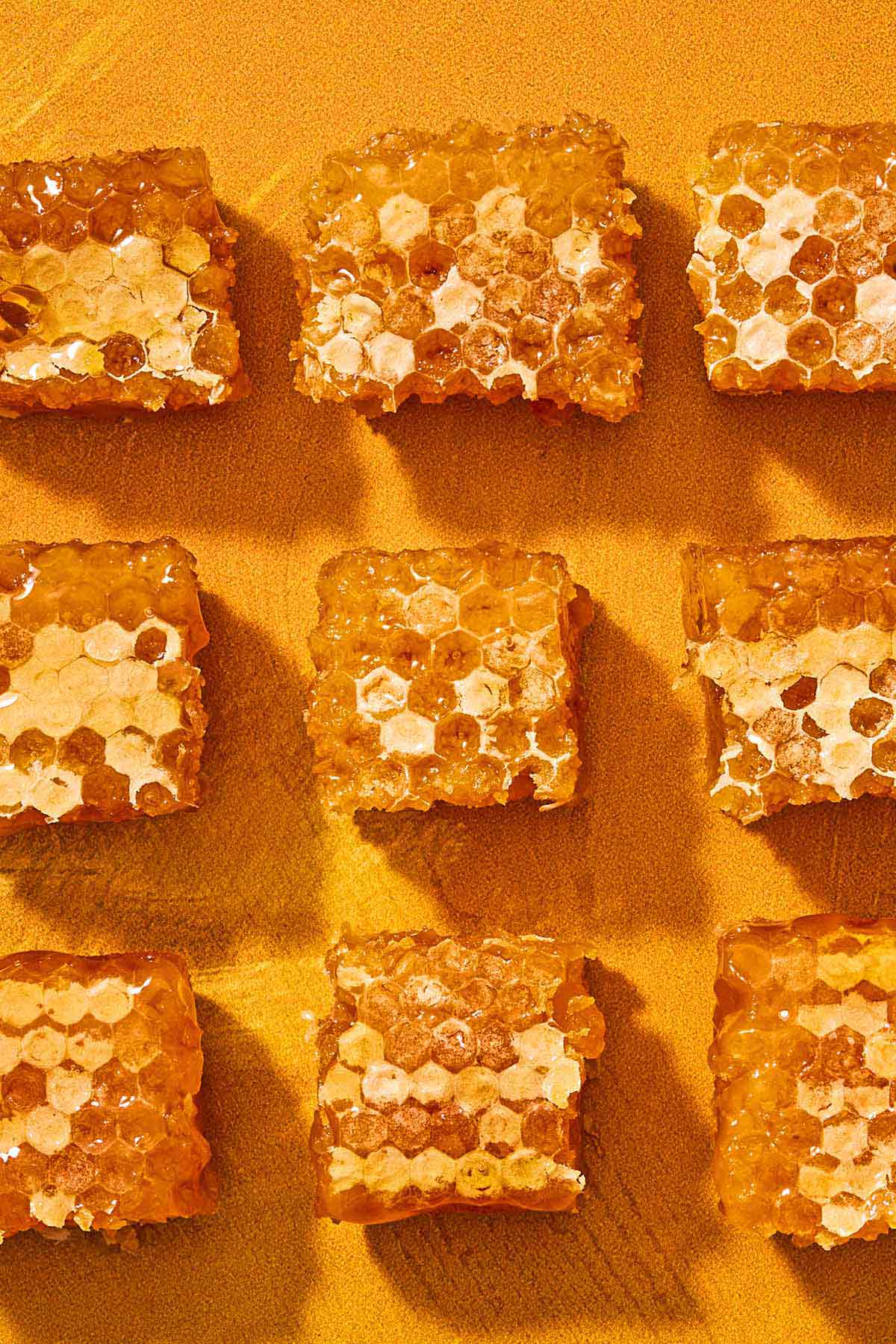
Benefits of Raw Honey
Because raw honey retains bee pollen, it retains a variety of vitamins, minerals, enzymes, and antioxidants, making it the more nutritious choice. Raw honey is in its purest form—taken straight from the hive, strained, and bottled without pasteurization. Standard honey undergoes processing and filtration to extend its shelf life, which removes bee pollen and many of its natural nutrients. You can often find raw honey at farmers’ markets, online, or in specialty grocery stores.
If you’re looking for the most nutrient-rich honey, opt for “raw” or “unfiltered” honey. That said, just because a honey is filtered does not mean it’s low-quality. You can find flavorful filtered honey; just be sure to check the label to confirm there are no added sugars or sweeteners.
- TRY IT: We source a variety of flavorful, 100% natural, raw honeys from Italy and Greece.

How to Enjoy Honey on the Mediterranean Diet
Honey is more than just a natural sweetener—it’s a health-enhancing staple of the Mediterranean diet. When enjoyed in moderation, it offers a more nutritious alternative to refined sugar. There are countless ways to incorporate honey into your meals:
- Yogurt: Drizzle it over Greek yogurt with nuts or granola and fresh fruit
- Toast: Spread it on whole wheat toast with ricotta for a wholesome breakfast or snack.
- Appetizers and sides: Drizzle on prosciutto-wrapped figs and grilled halloumi, or make the perfect nutty-sweet spread for oven roasted sweet potatoes.
- Fish: Use as a glaze for salmon or to make a honey citrus dressing for avocado tuna salad.
- Chicken: Honey brings balance to citrus honey chicken and garlic Dijon chicken.
- Healthier desserts: Dress up grilled mango with honey and spicy Aleppo pepper, or make Pasteli, a refined sugar-free sesame chew from Greece. Vegan donuts in honey syrup are an Egyptian treat.
Local Honey for Allergies: Does it Work?
I get this question a lot. Though there is some anecdotal support for using local honey to treat allergies, more research is needed to support this theory. And, though honey may not cure your allergies, its soothing properties can help ease the symptoms.
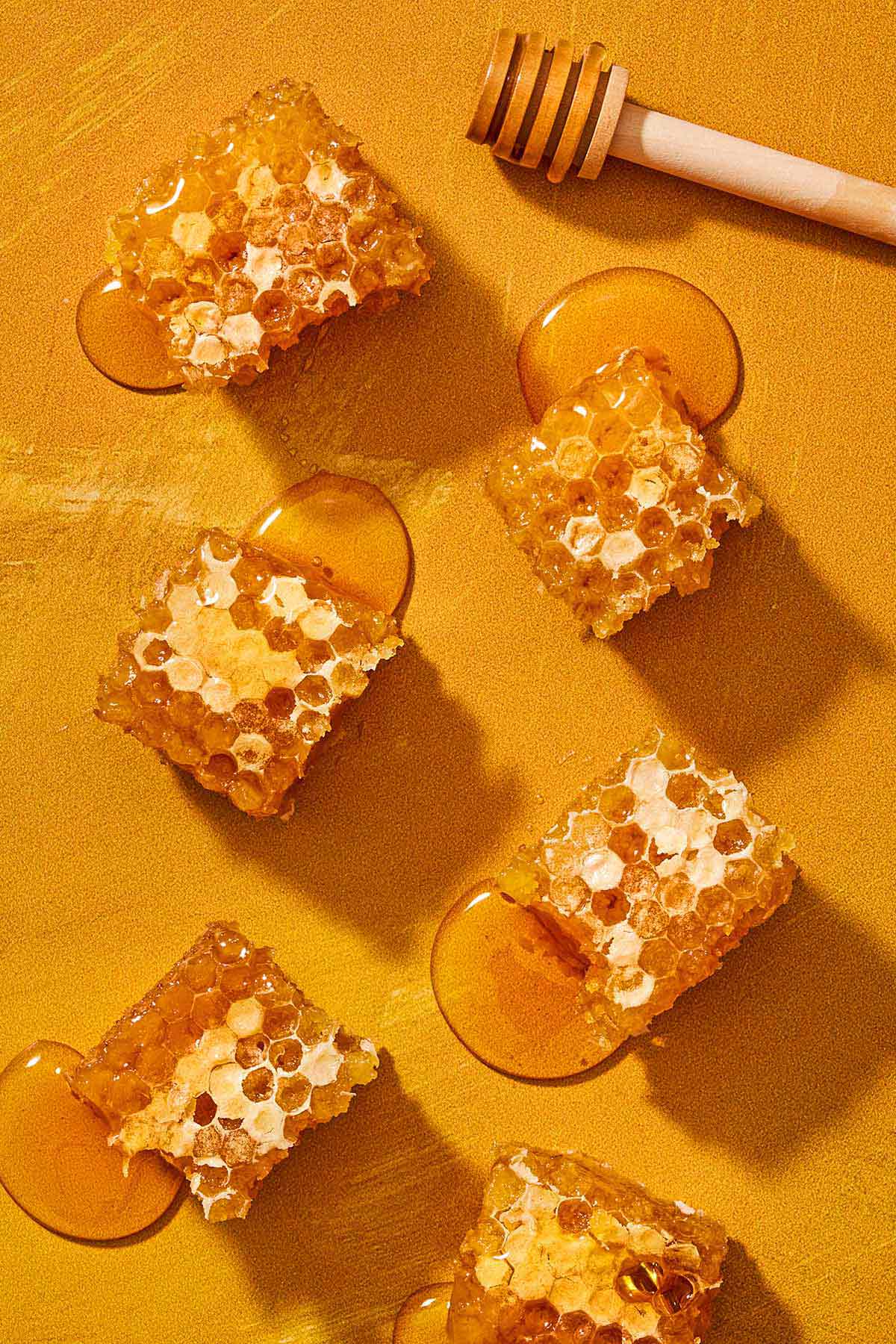
How to Store Honey
To keep honey fresh and maintain its quality, store in a tightly sealed container at room temperature, away from direct sunlight and heat. A honey dipper lid will make your life easier! Or if you’re looking for an all-in-one dipper jar and lid, this one will do the trick. Using a dipper jar with a secure lid keeps the honey away from insects who also love the sweet treat.
And keep in mind, while honey may naturally crystallize over time, you can restore its smooth texture by gently warming the jar in warm water. Generally, honey does not spoil. However, if you see mold or if it has a “sour” smell, it is probably time to replace your honey.
Greek Alfa Honey
Raw, unfiltered, 100% natural honey from the Greek island of Crete.
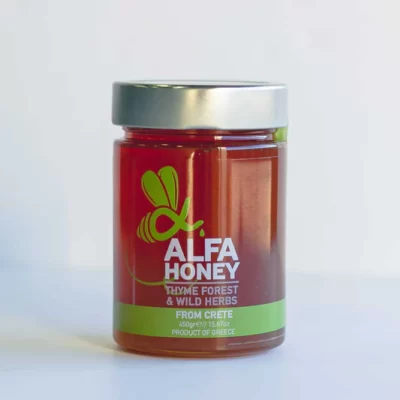
Explore the Versatility of Honey in These Recipes!
Meat and Poultry
Harissa Honey Chicken
Dips and Condiments
Balsamic Vinaigrette
Appetizer and Mezze





